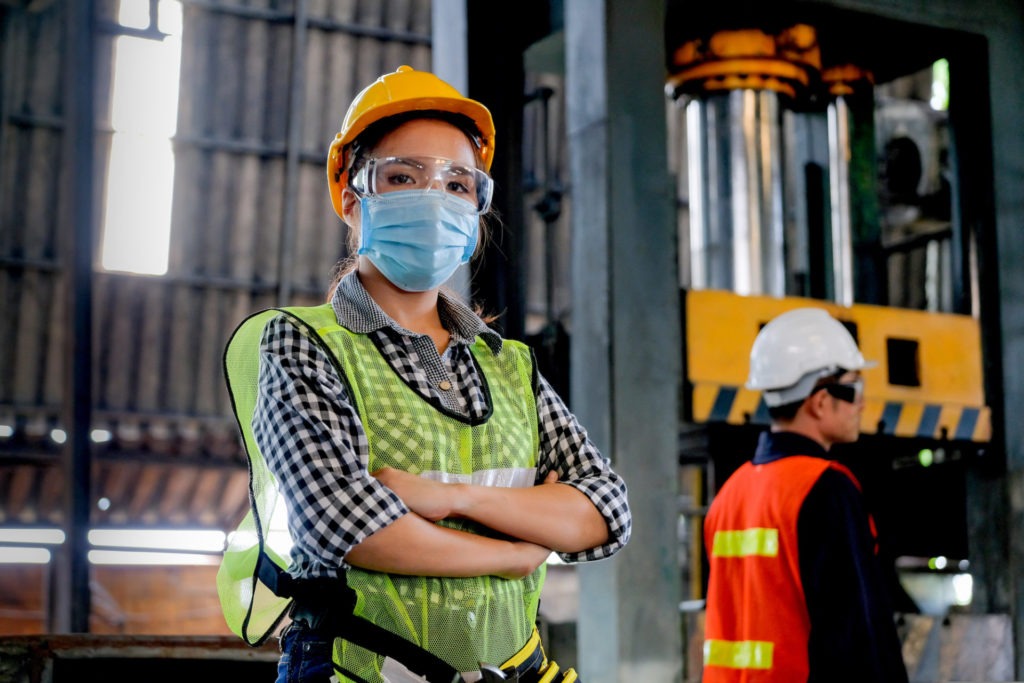Back in April, UN Secretary-General António Guterres urged the world to “put women and girls at the centre of recovery efforts” as the UN released a report highlighting how the pandemic could reverse the limited progress made on gender equality worldwide.
Unfortunately, it seems his advice has largely been ignored, with much of the world failing to adequately address the fallout from COVID-19 on women and girls.
That’s according to the just released United Nations’ COVID-19 Global Gender Response tracker, monitoring 2500 policy measures across 206 countries to apply a gender lens across three policy areas: those that tackle violence against women, those that support unpaid care, and those that strengthen women’s economic security.
One fifth of the countries (42) were found to have no gender-sensitive measure in place at all, and just 25 countries have a least one measure in all three areas — meaning just one in eight countries have done at least one thing to address all three measures.
And no, Australia is not one of the one in eight.
The assessment of Australia’s COVID-19 response found that we have introduced zero measures addressing women’s economic security. We’re far from alone there, with the report identifying a major gap across most countries on measures aiming to secure and boost women’s employment.
Australia did fare better on tackling violence against women, with 12 measures introduced. Australia was also found to have four measures introduced to tackle unpaid care, and 16 measures considered to include a “gender sensitive” component.
On ‘unpaid care’, the UN Tracker found Australia to have initially demonstrated an innovative response, with the Early Childcare Education and Care Relief Package identified as being “significant”. However, the report then noted the package was later “significantly scaled back”.
The report described Australia’s response to domestic violence as a “comprehensive package of 12 measures”, covering funding for the legal sector, for the national domestic, family and sexual violence hotline, 1800RESPECT, as well as the “Help is Here” campaign showing where to seek health. It also noted Australia’s judicial services being moved online, including the ability to obtain online access to restraining orders.
Overall globally, the Tracker found that the social protection and jobs response to the pandemic has mostly overlooked the needs of women and girls — despite the impact of the pandemic on women, in terms of violence, unpaid care, and being overrepresented in insecure work. Recently, UN research also projected women’s poverty to increase 9.1 per cent world wide as a result of the pandemic.
UNDP Administrator Achim Steiner said in announcing the results, the COVID-19 crisis should provide an opportunity for countries to transform “existing economic models towards a renewed social contract that prioritizes social justice and gender equality.”
Unfortunately, much of the world is squandering this opportunity, including Australia, where current policies are largely (as we have previously reported) supporting a ‘bloke-covery’ in response to the ‘she-cession.’
It’s particularly disappointing to see Australia on the list of countries with zero measures to support women’s economic security. Unsurprisingly, the Morrison Government’s recent secret ‘Women’s Jobs Creation’ forum that was held without media present, and produced no tangible outcomes or even a basic official report that we can read to learn what went on, did not make the cut.
This tracker is designed to help accelerate such policy reform, by highlighting the gaps and detailing the best practices and ideas that are emerging.
But it’s not enough to adopt measures that consider the needs of women, such measures must be adequately financed and sustained over the long term.
As such, the UNDP and UN Women make a number of key recommendations, including that: services responding to and preventing violence against women must be treated as “essential services” and adequately funded; any fiscal packages must not exclude women from response and recovery; and governments must support active participation in leadership and decision-making processes in their COVID-19 responses, and invest in sex-disaggregated data to identify how the pandemic is impacting men and women differently.
On the recommendation on leadership, a lack of female representatives in the bodies that are making decisions on COVID-response measures is particularly problematic. Back in June, research from CARE Australia surveying 30 countries, found the majority of national-level committees established to respond to COVID-19 do not have enough women involved.
We’re still deep in the COVID-19 and talk of ‘recovery’ is premature in many places that are yet to feel the full force of the pandemic. But António Guterres’ words should be kept top of mind. The best way to make that happen? Getting women — of all ages, backgrounds and abilities — quickly represented in the decision-making circles. Don’t let the opportunity to reset be limited by a lack of imagination.


